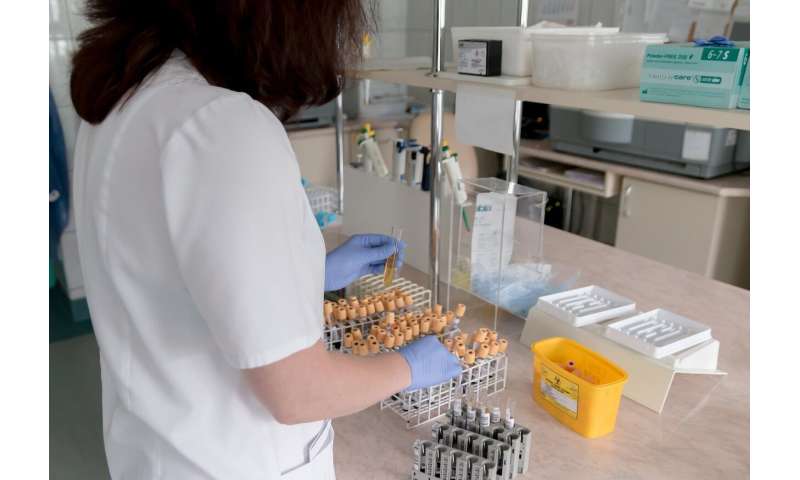
The United States on Friday announced it was funding development of rapid diagnostic kits for the novel coronavirus as people across the country reported they were unable to get tested for the illness because of shortages.
US authorities have come under fire for lagging behind in deploying test kits, which leading health experts have said allowed the virus to spread beyond the country’s ability to detect it.
The Department of Health and Human Services (HHS) said Friday it was providing almost $1.3 million in funding to two labs to develop tests that return results in about one hour. At present results generally take several days.
The HHS said it was providing almost $700,000 to DiaSorin Molecular of California and just under $600,000 to QIAGEN of Maryland to develop the tests, but provided no timeline about when these would be available.
As of Friday morning there were more than 1,700 confirmed US cases and 40 deaths, according to a Johns Hopkins University tracker.
Test refusals
At the start of the outbreak testing was only occurring at the headquarters of the Centers for Disease Control (CDC). The CDC then started sending its kits out to state labs, but the first batches were faulty and had to be modified.
Regulatory hurdles meant that state authorities were prevented from developing and using their own tests based on protocols provided by the World Health Organization.
These roadblocks were finally lifted on February 29, a month after the first US case, and private laboratories including major players LabCorp and Quest have announced their kits have entered the market.
But on the ground, people are still reporting they are unable to be tested—even when clinical signs suggest they have the pathogen.
Amy, a 39-year-old IT manager from northern Virginia who asked to go by just her first name, told AFP she began to get symptoms of the virus on March 7—a dry cough and later a shortness of breath when she went up the stairs.
She had recently traveled to Egypt with her boyfriend, and been around her mother, who has also been sick with an unidentified respiratory illness.
By March 10, she had a raging fever and headache and went to a local hospital, where she was placed in isolation and subjected to a battery of tests that ruled out flu and other viruses.
Her doctor said he suspected the novel coronavirus but told her he did not know if he was meant to keep her in isolation because tests were not available and the local health authority was not answering calls.
Eventually she was sent home and told to self-isolate. “They gave me two papers for release: One says unidentified upper viral respiratory infection, the other one is COVID-19 instructions and how to contact the health department,” said Amy.
She was informed by the hospital that the local health department refused to provide a test because they are being rationed and as a person under 60 she was not considered a priority.
“I’m sitting in isolation right now with no real answers, and frankly the health department’s not tracking me,” she said.
“I do have children, I do have people that live with me, I do have a job, I do have responsibilities in the community, and I can’t get an answer so I have to stay away from everyone right now.”
‘Failing’
Earlier this week Vice President Mike Pence said that through a combination of government and private efforts a million test kits had now been deployed and millions more were on the way—figures that were later revealed to be misleading because these kits still lack vital components to activate them.
Testifying to Congress on Thursday, the CDC’s director Robert Redfield said that the kits were not operational because there was a shortage of re-agents, the activating substances, and they also required more nasal swabs and trained staff.
Anthony Fauci, head of the National Institute of Allergy and Infectious Diseases (NIAID), was even more stark when quizzed on the subject by a Democratic lawmaker.
Source: Read Full Article
